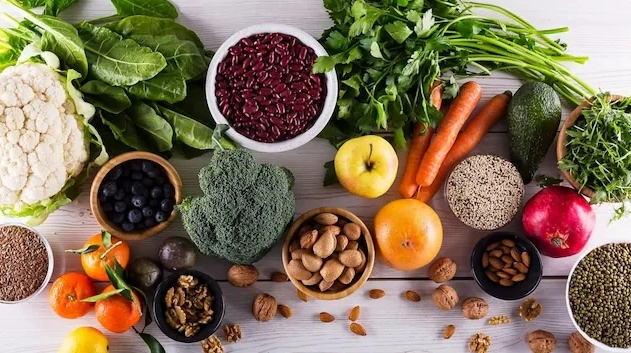
Inflammation is a natural response of the body’s immune system to harmful stimuli. The major signs of inflammation include redness, swelling, soreness, fever, and discomfort. These symptoms can help you determine whether a toxin is in your body and take appropriate action to treat it. Many people aren’t aware that lowering inflammation levels is crucial. Chronic inflammation is linked to numerous health issues, including heart disease, type 2 diabetes, autoimmune disorders and even mental health conditions.
During an interview with HT Lifestyle, Diabetes and Inflammation specialist and Nutritionist Khushboo Jain Tibrewala opened up about inflammation. Emphasising the natural way to prevent inflammation, she said, “Unlike fad diets that focus solely on weight loss, plant-based foods offer a much broader spectrum of benefits."
As per research, vegan diets are associated with significantly lower levels of C-reactive protein (CRP), a marker of inflammation, compared to omnivorous diets.
Foods That Fight Inflammation
Several traditional Indian plant-based foods have shown significant results in the fight against inflammation. “Turmeric, ginger and amla are powerful anti-inflammatory ingredients used in everyday cooking. Lentils (dal), sprouts and millets like ragi and jowar provide essential protein and fiber," Khushboo Jain Tibrewala added.
Several reports suggest foods that are rich in omega 3 like mustard oil, seed oil, soybean oil, and nutmeg should also be added to your diet. Items rich in vitamin A like olive oil and high-fibre foods like legumes and green vegetables can also help reduce inflammation.
Interestingly, curd, idlis, kimchi salads, and non-oily fresh pickles are examples of fermented foods that aid in the release of beneficial microbes to prevent inflammatory issues. Several herbs and spices, such as turmeric, are also beneficial for an anti-inflammatory diet because they are high in antioxidants. Furthermore, the minerals found in whole grains, pulses, lentils, nuts, seeds, and legumes (such as beans, gram, and chickpeas) often boost immunity.
However, the experts stress that lowering inflammation cannot be achieved with a single superfood. To maintain your health, you should make sure that your body receives the proper amounts of proteins, lipids, carbs, minerals like zinc, magnesium, and selenium, and vitamins A, C, E, and D.